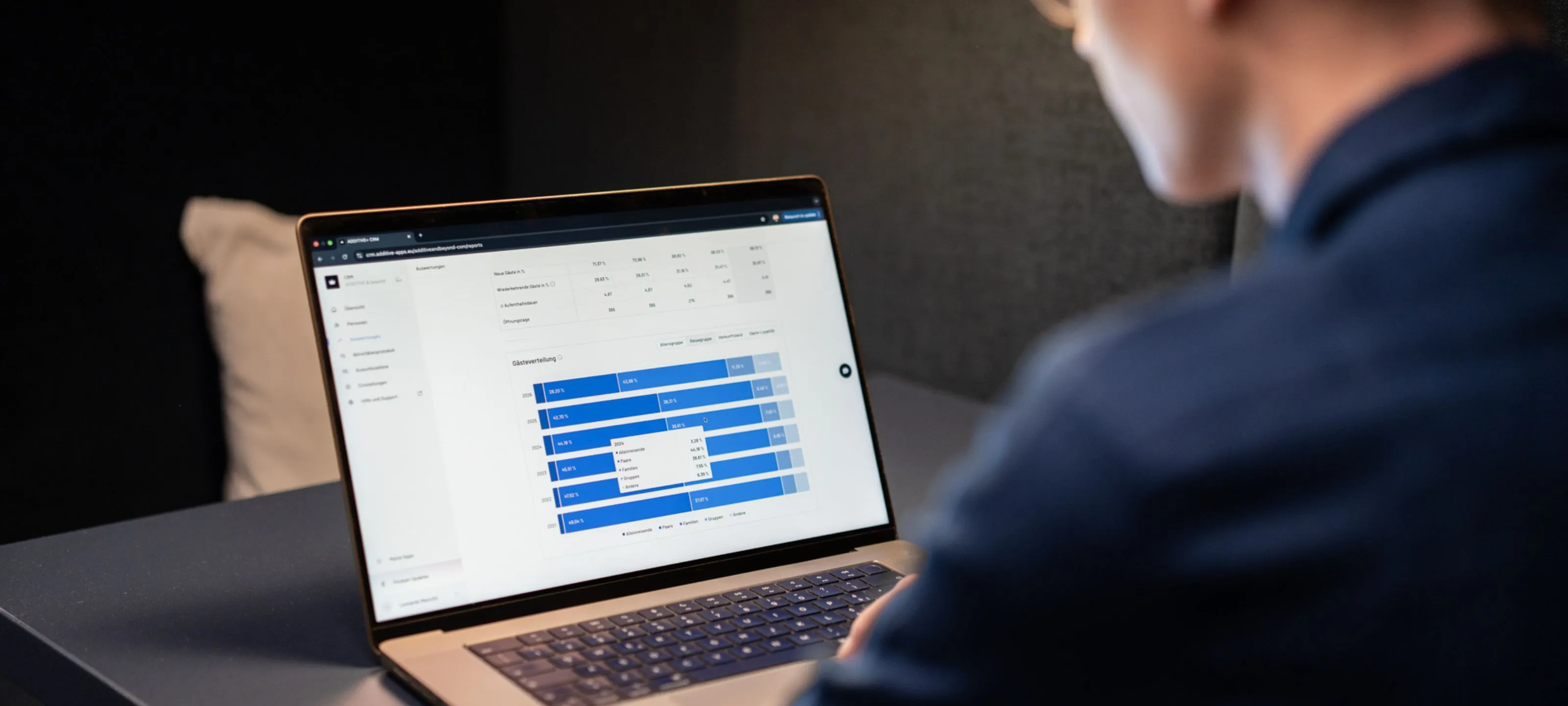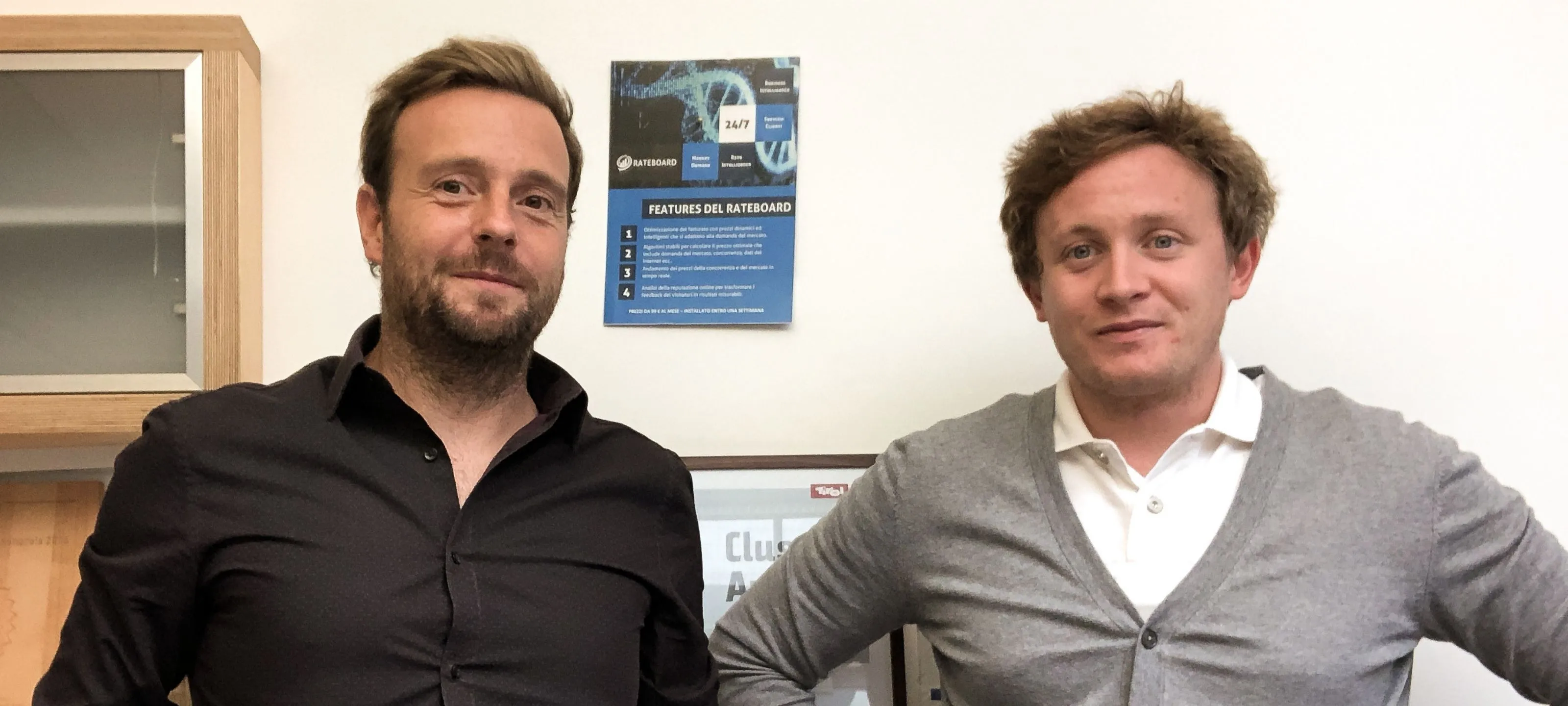
In Conversation with Matthias Trenkwalder, RateBoard GmbH

Matthias Trenkwalder from RateBoard demonstrates how hotels can increase revenue through dynamic pricing strategies and smart software solutions—especially in the holiday hotel sector, where potential often goes untapped.
Dynamic Pricing Strategies
<div class="article_quote"><div class="article_quote_contain"><div class="article_quote_quote">"In the holiday hotel industry, companies sell themselves too cheaply, especially in times of high demand."</div><div class="article_quote_name u-text-style-main">Matthias Trenkwalder</div></div></div>
Matthias Trenkwalder is one of the founders of RateBoard, together with Simon Falkensteiner. Founded in Innsbruck in 2015, the company offers a revenue management system (RMS for short) that helps hotels and destinations set prices based on big data. After studying international economics at the University of Innsbruck and LUISS in Rome, Trenkwalder quickly started building his startup.
<h3 class="interview-question">Mr. Trenkwalder, what relevant customer problem in the hotel industry does RateBoard solve?</h3>
Static or seasonal price lists no longer fit today's online distribution in the hotel industry. With our software, we support hoteliers in setting and adjusting prices to better meet demand. RateBoard is a revenue management software specifically designed to meet the needs of the resort hotel industry and help increase hotel revenues through better pricing decisions.
<h3 class="interview-question">What is your role at RateBoard GmbH and how many people are on your team?</h3>
I co-founded RateBoard with Simon Falkensteiner over three years ago. Simon is mainly responsible for the product and I am responsible for sales. We now have around 20 full-time employees.
<h3 class="interview-question">Can you briefly explain how revenue management software and dynamic pricing strategies can benefit a hotel in the resort hotel industry?</h3>
Revenue management software not only controls prices, it also provides a better overview of your own hotel or the entire market. The tool aggregates various data, presents metrics in an automated way, and alerts you to specific market situations. For example, I define a specific room revenue for my hotel for the month of August 2019. The software warns me in March: Attention, the occupancy rate is much worse than last year. In short: saving time and increasing profits through adjusted price recommendations.
<h3 class="interview-question">What can the hotelier do if he is notified in March that he has too few bookings for August?</h3>
There are many possible solutions. We know from experience that there are often very simple reasons, such as a recent interface problem with the hotel program: on booking.com, the hotel was shown as permanently occupied, so no new bookings could be made. Such problems are often not recognized until it is too late and you suddenly have a much lower occupancy rate than planned.
<h3 class="interview-question">You mentioned the key indicators evaluated by the software. What are the most important indicators that RateBoard produces?</h3>
Certainly RevPAR (revenue per available room), which is the revenue per available room and therefore generally the most important figure in revenue management. It allows you to better assess the actual situation and make comparisons. If you only look at the average price, you could theoretically sell only one of the 50 available rooms at a price of 700€. But that is not the point, the bottom line is that this is not a successful day for the business. RevPAR shows whether you are operating profitably and allows you to make better comparisons to the previous year or to the competition.
Revenue Management in Holiday Hotels
<div class="article_quote"><div class="article_quote_contain"><div class="article_quote_quote">"You can make the same or even more revenue with less occupancy if you have higher average rates."</div><div class="article_quote_name u-text-style-main">Matthias Trenkwalder</div></div></div>
<h3 class="interview-question">A hotel property management system (PMS) does not show this indicators?</h3>
Maybe some, but I don't know if they have centralized this metric. For an RMS, it is fundamental. We always try to communicate to hoteliers that the goal is not 100% occupancy, but good average rates. You can make the same or even more revenue with lower occupancy if you have higher average rates. Especially in the resort industry, properties are underselling themselves, especially during periods of high demand.
<h3 class="interview-question">To be more precise: RateBoard is not a yield management system that can cause the price to go down, with all the risks that entails, but RateBoard is an RMS that optimizes the price upwards, with a minimum price set by the hotelier?</h3>
Exactly, we set different minimum prices for different periods and generate more revenue for the hotelier in times when demand is already high, just because of the higher average prices.
<h3 class="interview-question">Why should a hotel choose RateBoard?</h3>
RateBoard is the only system that is specifically focused on the holiday and family hotel industry and the only revenue management software provider that offers a large number of interfaces to PMS and CM (approx. 50 systems in the DACH region such as Protel, Fidelio, ASA, Xenus, Casablanca). RateBoard is also not commission based, we offer our product at transparent prices with no hidden additional costs.
<h3 class="interview-question">What data and values are currently used in the pricing process?</h3>
The algorithm takes into account market demand, competitor rates in the same destination, the occupancy rate of the company's own hotel, including historical booking data, as well as data relevant to the resort hotel industry, such as holiday periods or events in the destination. Humanly speaking, it would be difficult to keep track of all this. RateBoard provides a remedy with a central tool.
<h3 class="interview-question">Are the calculated rate recommendations automatically transferred to the hotel software or channel manager?</h3>
Full automation (i.e. as soon as prices change in RateBoard, they are automatically transferred to the PMS) is not provided in RateBoard by default. RateBoard price recommendations must be confirmed by the decision maker or can be changed at any time. By confirming the entered or transferred prices, they are sent back to the PMS in the next step. Although it is technically possible to automate this process, we recommend that the hotelier take a look at the prices. After all, this is the most important profit lever for his business. The time invested in understanding how the machine works will also help the business.
<h3 class="interview-question">Is there a way to change the price on each channel?</h3>
Yes, we can define different rate plans so that the price is increased on certain OTAs to compensate for the higher commission. But we are not a channel manager, we focus on revenue management with different interfaces to these systems. RateBoard has several calculated rate plans that are sent to the hotel software. The hotel software has a channel manager and sends the different rate plans to the appropriate channels.
RateBoard in Growth
<div class="article_quote"><div class="article_quote_contain"><div class="article_quote_quote">"It would be unrealistic to say that you can double your revenue with an RMS; after all, we can't change the market. You can only adapt better."</div><div class="article_quote_name u-text-style-main">Matthias Trenkwalder</div></div></div>
<h3 class="interview-question">What is the average after the first year?</h3>
Our average is a real revenue increase of 8-12% in the first year, on top of the 4-5% increase due to inflation.
<h3 class="interview-question">What are the difficulties and stumbling blocks in implementing revenue management software? The change from fixed to dynamic pricing is like a cultural change, not only the hotelier has to get used to it, but also his employees and his guests.</h3>
Exactly, you have hit the nail on the head: the involvement of the entire team is essential. Together with the hotelier, we create a project plan and accompany the customer during the implementation of important steps such as How do I inform my staff? How do I communicate to my guests? How do I change my rate? With dynamic pricing, I need to clearly communicate at the end of the offer that it is only valid for 3 days. The potential guest needs to know that the price will increase with higher demand.
<h3 class="interview-question">What specific recommendations do you have regarding regular guests?</h3>
This topic has to be treated separately, some hoteliers have the misconception that regular guests are not yet familiar with dynamic pricing, even though it exists in almost every industry, and especially in industries that are also active in online sales. We at RateBoard would like to point out that the regular guest has also evolved: Just like new guests, they do their research, compare prices of similar hotels in the area, and read reviews of the hotel they are staying at. At the end of the day, the repeat guest is just as much a customer as any other, and it is up to each hotelier to decide how to treat them. For example, you can offer a fair "from price" or base price so that regular guests do not notice the change in revenue management. But you can also tell those guests who call the day before their desired arrival in high season in a friendly way, "Please book earlier next year, because I actually charge double now.
<h3 class="interview-question">How long does the implementation process take? When can I expect to see the first positive results?</h3>
Installation of the interface takes between 2 weeks and 2 months. After that, customization is done with the revenue managers. The PMS and hotel operations continue to run during the installation. After a successful training with the most important features, any ambiguities or questions from the customer will be answered in another phone call after one week.The first positive results can be expected after half a year, after the installation and setup has been completed.
<div class="article_quote"><div class="article_quote_contain"><div class="article_quote_quote">"We help optimize sales through better pricing decisions."</div><div class="article_quote_name u-text-style-main">Matthias Trenkwalder</div></div></div>
<h3 class="interview-question">What is the investment cost for implementation and operation of RateBoard?</h3>
There is a one-time investment of €795 for setup and training, with additional monthly costs ranging from €195 to €395 (depending on the size of the hotel). The annual license is based on the number of rooms and starts at €195 per month including support.
<h3 class="interview-question">How many properties are already using RateBoard and how many are being added on average per month? Which alpine regions are experiencing the most growth?</h3>
There are already well over 200 hotels and we are currently adding 10-20 new hotels per month. Due to our origins and the start of our business, about 60 of our customers are from South Tyrol. However, we are currently growing very successfully far beyond the Alpine region. In the last few months, we have added many hotels from the technologically open North Sea and Baltic Sea regions, as well as from Italian regions such as Tuscany. We are particularly pleased that well-known European hotel chains are now also switching to RateBoard or starting with us; we now enjoy a great deal of trust in the market.
<h3 class="interview-question">What further developments are planned for RateBoard in 2019?</h3>
First of all, we are working on an even more individual customization of the system with extended control mechanisms in order to implement our own pricing strategy 1:1. Secondly, we will expand the destination management solution to make benchmarking even easier and thirdly, we will optimize the solution especially for hotel chains.
<h3 class="interview-question">Where will RateBoard be in 2025 as a product and compared to its competitors?</h3>
Our goal is to be the leading revenue management system in Europe, serving thousands of hotel companies.
<h3 class="interview-question">Is there anyone from the tourism, marketing or technology industry that you have always wanted to meet? Why and what would be your key question to that person?</h3>
Brian Chesky, one of the founders of Airbnb, because he took a relatively simple idea and disrupted one of the largest industries in the world, with a massive impact on regions and especially cities and their real estate markets. My question to him would be how he will deal with the controversies in the future and create fairness between Airbnb hosts and hoteliers.







.jpg)

.jpg)
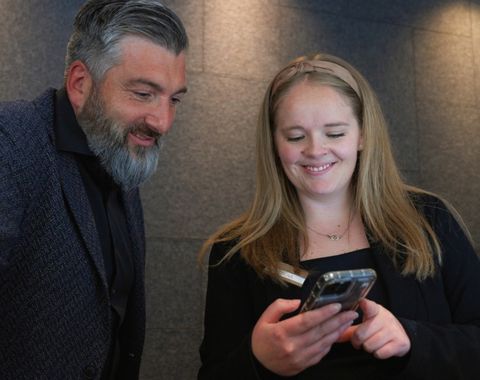
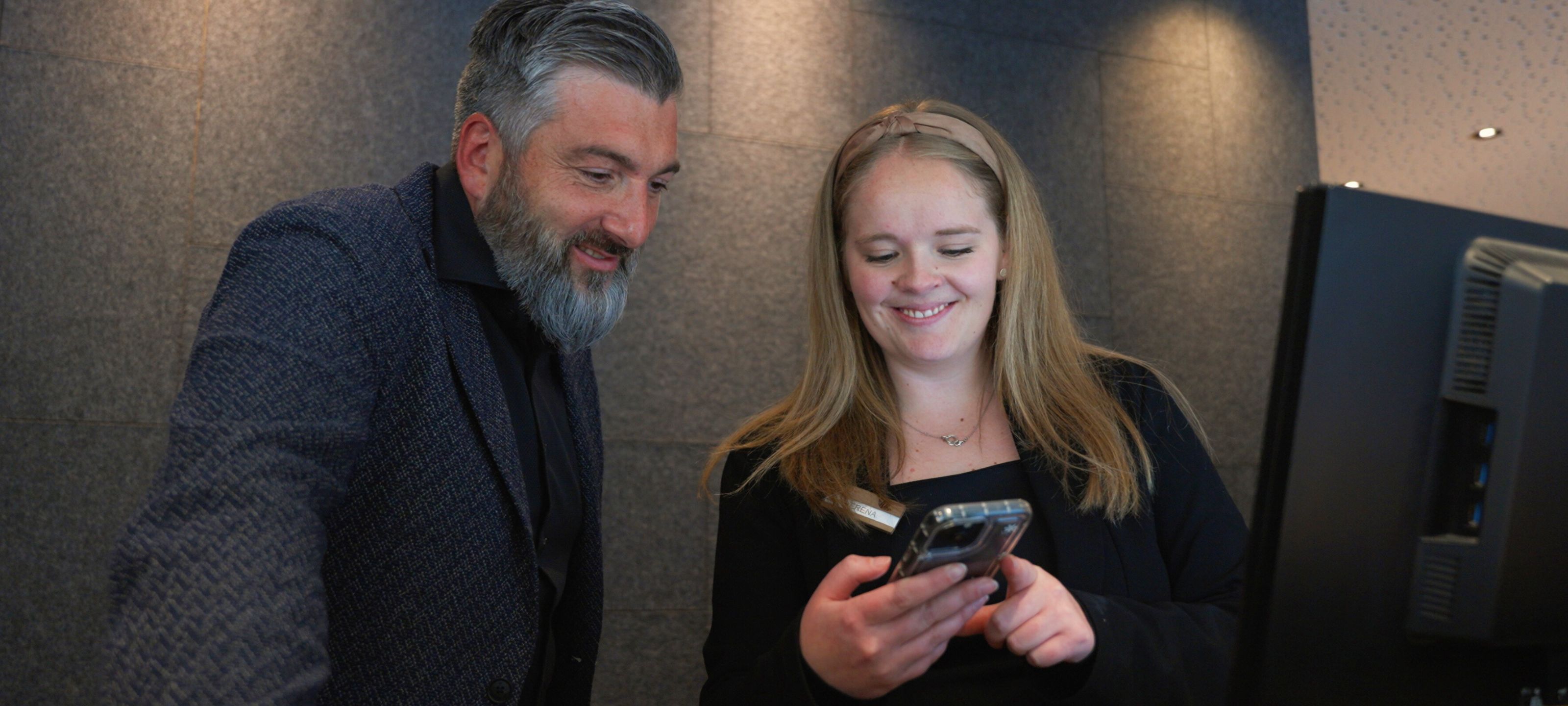
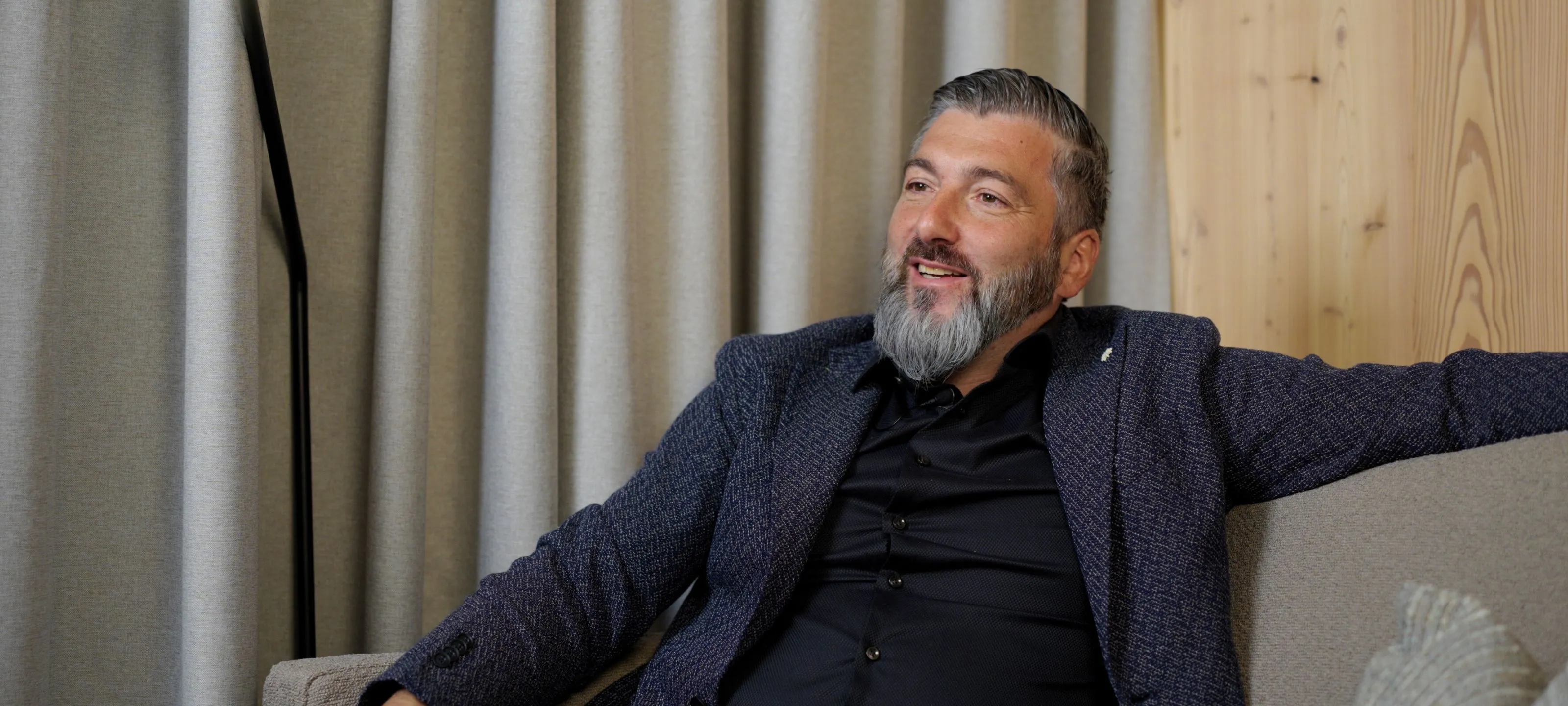
.webp)
